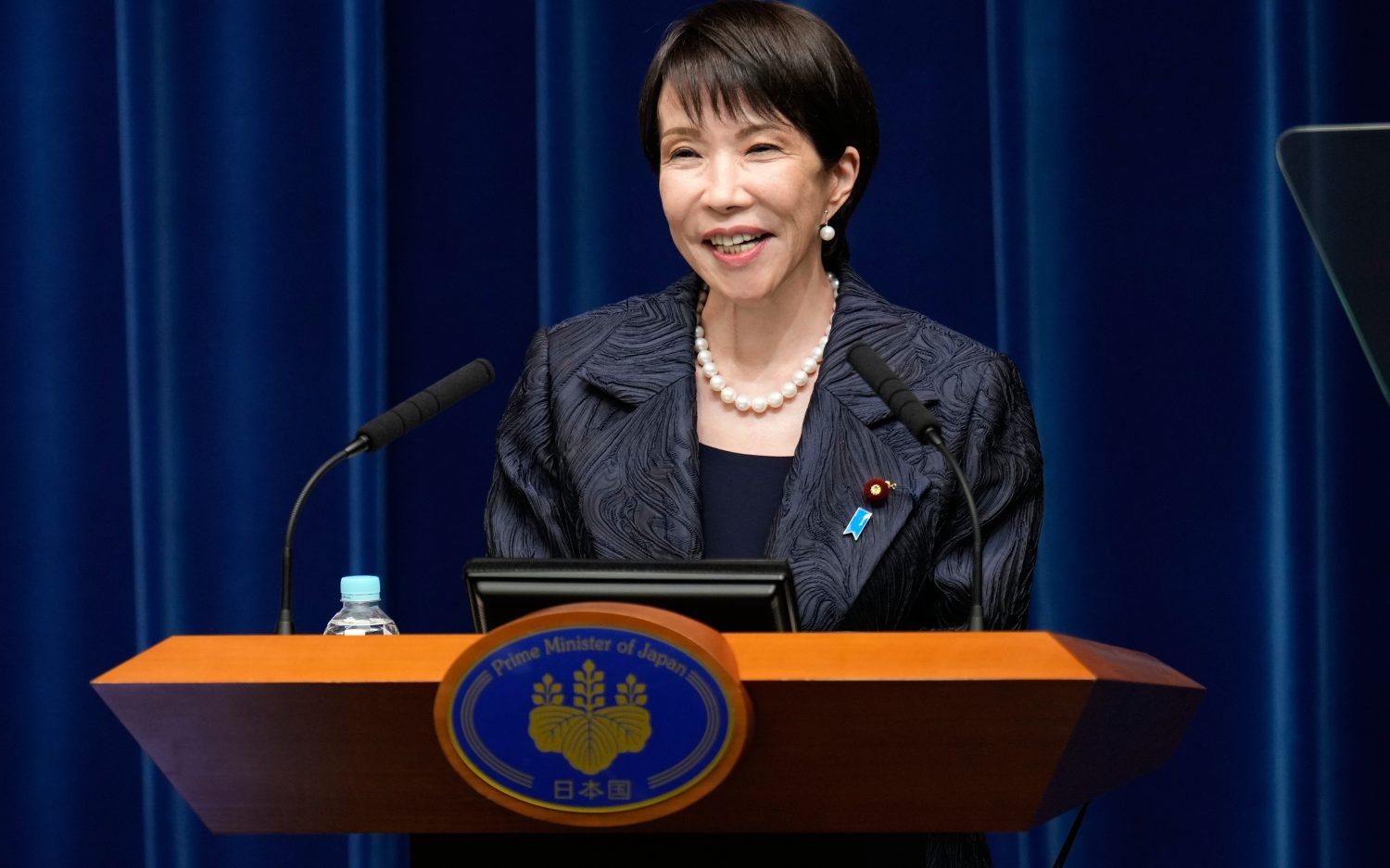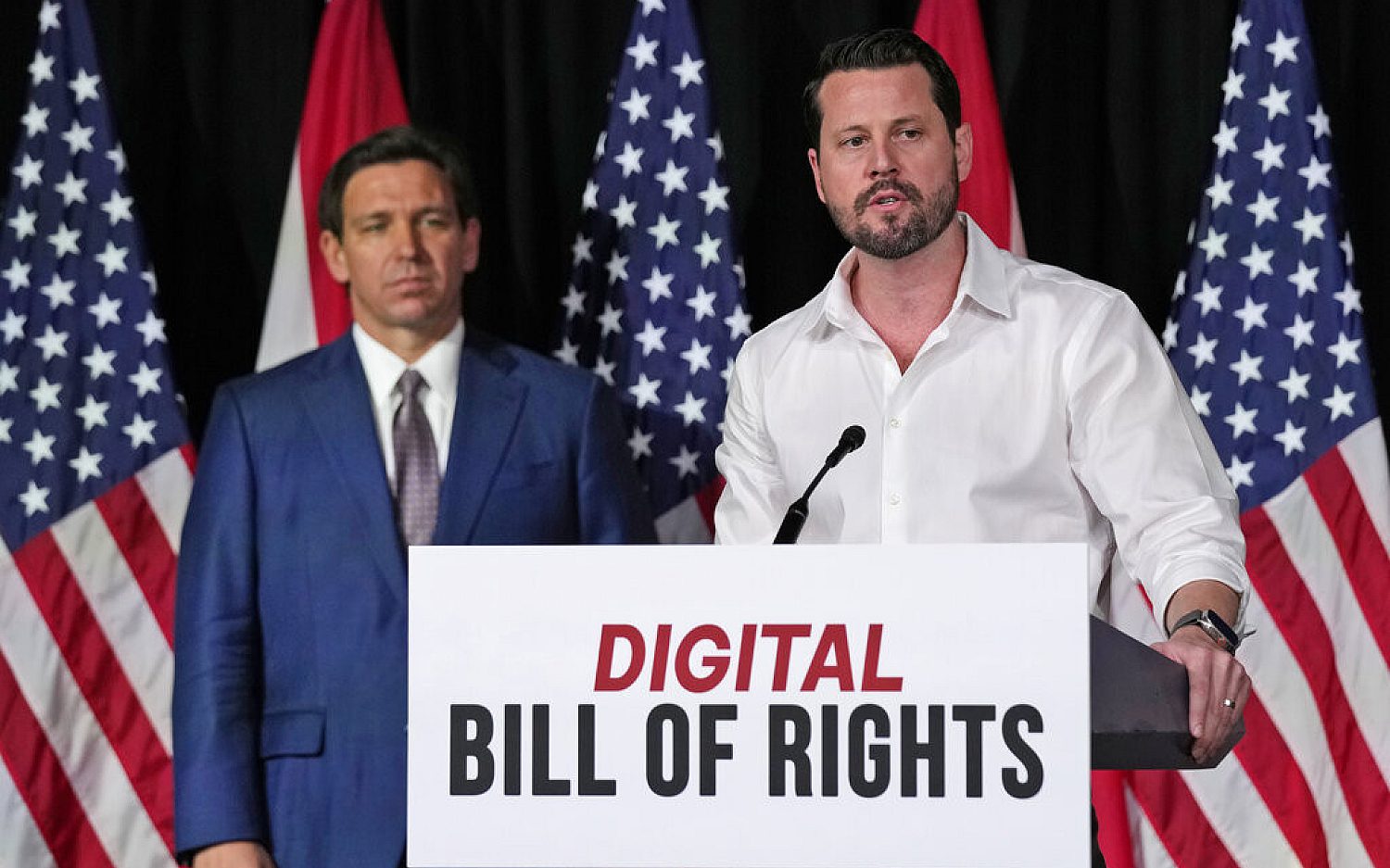Cruz and Rubio fight to a draw in GOP debate
The freshman senators attack each other over national security issues
Repeated clashes between rising Sens. Ted Cruz and Marco Rubio headlined the fifth Republican presidential debate Tuesday night in Las Vegas—the first to take place since terrorist attacks in Paris and San Bernardino altered the 2016 landscape.
Real estate tycoon Donald Trump still holds a big lead in national polls, but the freshman senators from Texas and Florida have emerged as his chief competitors for the GOP nomination for president. On Tuesday they stole the show, speaking the most of the nine candidates on the main debate stage, trading barbs and fighting to an overall draw on issues.
For his part, Trump unequivocally committed that he would not run as an independent in 2016—an important pledge, if he keeps it. Trump not only refrained from attacking Cruz, the new front-runner in Iowa, he also backtracked on previous comments that Cruz was unfit to be president.
Tuesday’s foreign policy debate was arguably more substantive than any of the first four debates, which often veered into personal bickering and moderator controversies. This time, CNN’s Wolf Blitzer and Dana Bash and Salem Radio’s Hugh Hewitt kept a close focus on the issues and a fairly tight rein on the candidates until several late verbal skirmishes.
The debate pitted the more hawkish views of Rubio and New Jersey Gov. Chris Christie against the less interventionist approaches of Cruz and Sen. Rand Paul of Kentucky, who barely made the main stage but had his best debate of the campaign.
“We defeat terrorism by showing that we do not fear them,” said Paul, who criticized Trump for wanting to halt Muslim immigration to the United States, punish the family members of terrorists, and censor the internet.
Rubio dinged Cruz for his three votes against the National Defense Reauthorization Act and tried to tie him to military budget cuts. Rubio also knocked Cruz for supporting the USA Patriot Act, a law that rolled back the National Security Agency’s information-gathering capabilities and took effect four days before two radicalized Muslims killed 14 people in Southern California earlier this month.
Cruz argued the law wouldn’t have helped and repeatedly attacked Rubio on immigration, calling him an ally of President Barack Obama and Sen. Chuck Schumer, D-N.Y. “Border security is national security,” Cruz said, later promising to build a wall on the U.S.-Mexico border and “get Donald Trump to pay for it.”
Rubio pressed Cruz for an answer on whether he would support some form of legalization for the 11 million undocumented immigrants already in the country—a question Cruz has sidestepped on the campaign trail, even though he proposed a 2013 amendment that would have provided such a path. “I do not intend to support legalization,” Cruz said, indicating he supports Trump’s mass deportation approach to the problem.
Cruz also aligned himself with Trump on Muslim immigration to the United States, proposing a three-year moratorium on accepting Muslims from countries where ISIS controls territory.
Former Florida Gov. Jeb Bush, pushed back hard on that front: “Banning all Muslims will only make it harder to do what we need to do, which is destroy ISIS. We need to engage with the Muslim world to make that happen.”
Bush, who has been waiting for a commander-in-chief debate to break out, had his strongest performance to date, although it likely came too late to save his flagging campaign. He landed several policy zingers and blows against other candidates, especially Trump, who lashed out at him at one point.
“You’re not going to be able to insult your way to the presidency,” said Bush, delivering what Facebook reported was the top social media moment of the night. “Donald is a chaos candidate, and he’d be a chaos president.”
Christie, who came into the night with recent momentum in New Hampshire, continued to emphasize his national security credentials and held his own, but he failed to capture a signature moment.
Retired neurosurgeon Ben Carson needed a big performance Tuesday night and didn’t get it. His poll numbers have tumbled in recent weeks amid repeated foreign policy stumbles, and while he avoided serious gaffes, he didn’t distinguish himself in a way that could bring his campaign out of its nosedive.
At one key moment Carson turned down an opportunity to weigh in on a policy disagreement between Cruz and Rubio, saying simply, “Let them fight.”
Earlier in the evening four other Republican candidates faced off in the undercard debate: former Arkansas Gov. Mike Huckabee, Sen. Lindsey Graham of South Carolina, former Sen. Rick Santorum of Pennsylvania, and former New York Gov. George Pataki. Once again, Graham dominated on account of his foreign policy prowess, prompting a new round of calls for him to join the top-tier candidates on the main stage.
Tuesday’s debates set the stage for a month of holiday season campaigning leading up to the next debate on Jan. 14. Voters will head to the polls in Iowa on Feb. 1.
Listen to Nick Eicher and Kent Covington discuss Tuesday night’s Republican debate on The World and Everything in It.
An actual newsletter worth subscribing to instead of just a collection of links. —Adam
Sign up to receive The Sift email newsletter each weekday morning for the latest headlines from WORLD’s breaking news team.





Please wait while we load the latest comments...
Comments
Please register, subscribe, or log in to comment on this article.